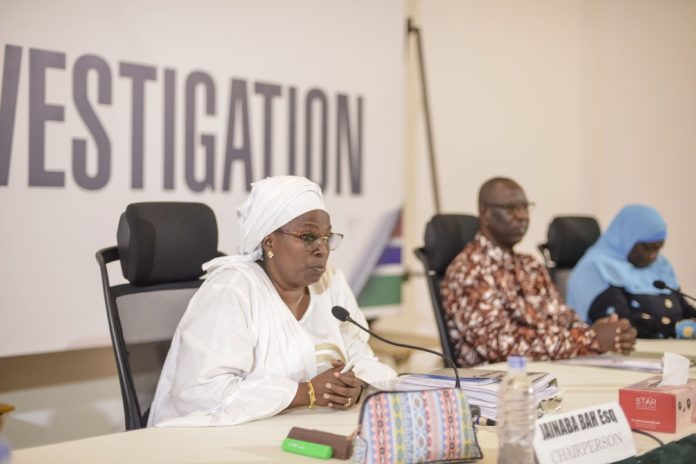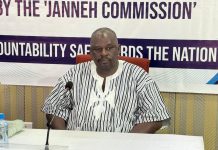By Yankuba Jallow
Additional testimony before the Local Government Commission of Inquiry on Tuesday has shed new light on previously undisclosed elements of the controversial contract between Brikama Area Council and 5C Energy, linking former chairman Sheriffo Bai Sonko to further procedural violations, financial discrepancies, and irregular payments.
The witness admitted that the Dubai trip financed by 5C Energy occurred before any negotiations on the contract began. Initially, he claimed negotiations began after the trip, but upon questions by Lead Counsel Patrick Gomez, he conceded that the trip preceded all formal discussions with the company. He stated that nominated councillor Sheriffo Bai Sonko came first and discussed with him about 5C Energy before bringing the 5C officials to his office in the council for a discussion. This was where the company indicated that they will sponsor them to go to Dubai to see how they operate.
“The Dubai trip happened before the negotiations,” he admitted.
This contradicts earlier statements seeking to suggest the visit was part of a due diligence process following initial discussions with the company.
In another revelation, the witness confirmed that the agreement between the Brikama Area Council and 5C Energy was never subjected to competitive procurement procedures, and that he did not receive advice from the CEO that such a process was required.
“There was no procurement process followed,” he said. “It was new, and we were all excited to bring this to the BAC to maximize the revenue.”
When pressed on the failure to follow procurement regulations, the witness said: “At the time, I did not know that this should be subjected to procurement. It was later that I know.”
The Commission also heard that the contract signed with 5C Energy lacked the baseline revenue figure—a key metric that determined whether the company would earn revenue. Under the agreement, 5C Energy was entitled to 50% of all revenue collected above a baseline to be set by the council. The witness was unable to locate this figure in the contract presented to him by the Commission.
“I don’t see the baseline here,” he said. “I will provide the other copy which contains the baseline.” However, he admitted that the signature on the contract was his.
The witness was confronted over a clause in the contract stating that 5C Energy had invested $3.5 million in the project. He denied the accuracy of the figure, claiming it was a mistake.
“I think they wanted to put Dalasi instead of Dollar,” he said.
Lead Counsel Patrick Gomez challenged the explanation: “It was written in the contract, reviewed, and signed.” He noted that if taken as accurate, the clause would imply a company investment of more than D120 million only to provide revenue collection devices. Sonko said the amount was high and inaccurate. The witness insisted it was a typographical error.
In a separate transaction with the same company, the Brikama Area Council purchased eight trucks from 5C Energy—five compactors and three with skip bins—at a cost reportedly exceeding D12.5 million. Again, the witness admitted there was no procurement process followed, and that the company delivered the trucks without any technical specifications from the Council.
“The CEO had the documentation,” he said. “Yes, the procurement process was wrong.”
Asked whether he had access to the contract for the truck deal, he replied: “I will provide the contract documents for the trucks.”
The Commission further heard of a terminated road construction project awarded to Gigo Construction, valued at over D9 million. Gigo claimed to have received just above D5 million, while former CEO Modou Jonga said the amount was over D6 million. The witness stated he was unaware of the payments and did not authorize them.
“It was a failure on my part for not adhering to the financial laws,” he acknowledged. “I did not know I had the authority to approve payments.”
Lead Counsel Gomez referenced provisions from the Local Government Financial Manual, which clearly state that the chairman has the power to authorize payments—a responsibility the witness admitted he failed to perform.



















